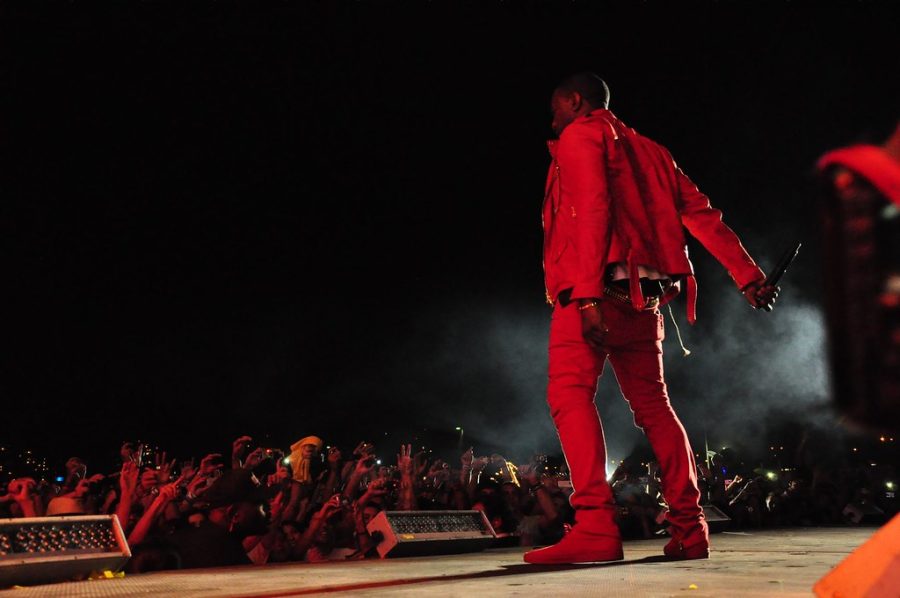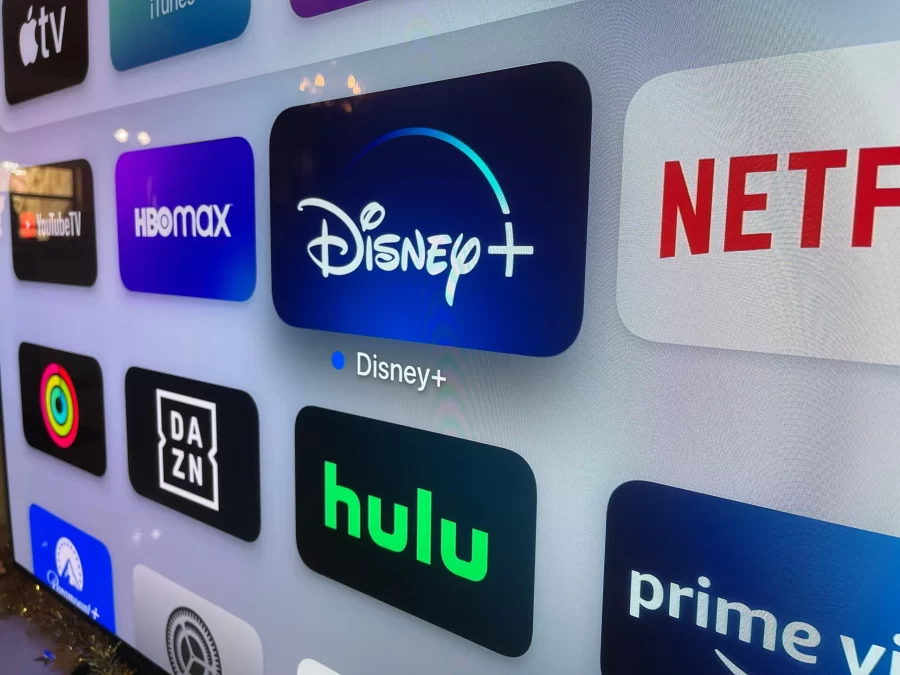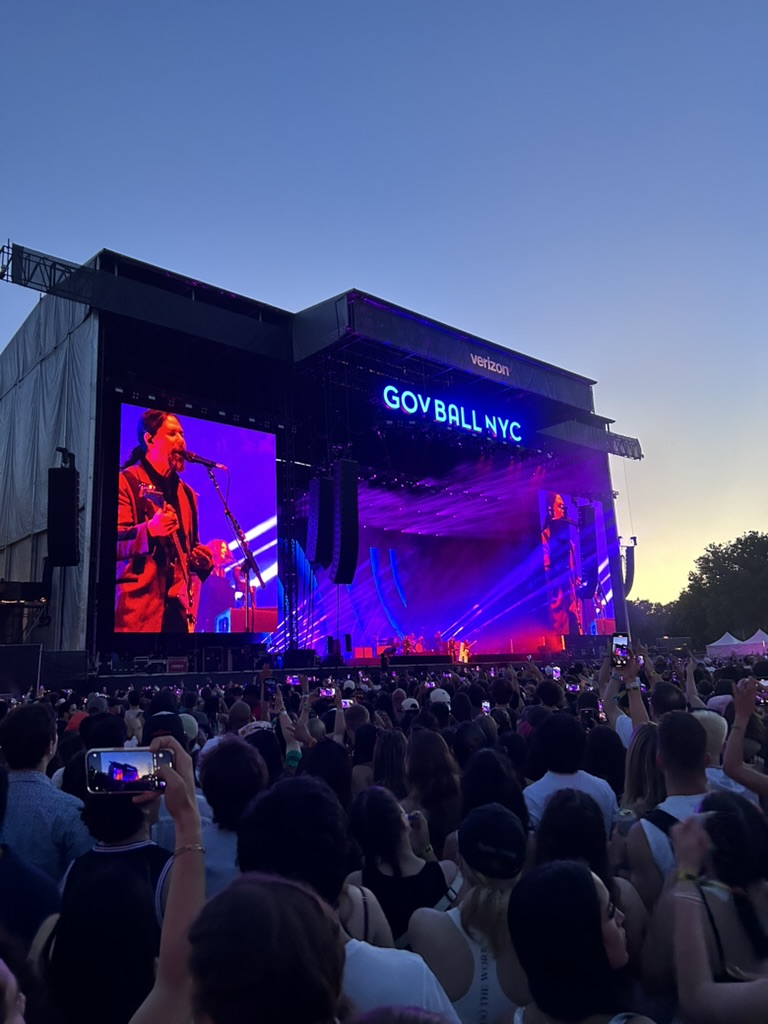The Cult of Kanye West’s Supporters, Unflinching With His Downfall
The whirlwind of controversy encircling Kanye West has led to a widespread of news across business, fashion, politics, and social media, but has it really affected music streamers and DHS students?
May 4, 2023
Amongst Kanye West supporters, there lay common means of thinking; West is a genius, a revolutionary, a freethinker, a god. To an audience who is unfamiliar with the rapper beyond his artistry and his top charters that have been overplayed at parties, the notion that West is a genius overshadows the knowledge of the musician’s decade-long career being tainted by controversy. Infamous for his incoherent twitter and instagram posts, his nonchalant and blunt persona, and overall egotistical public appearance, Kanye West’s radicalism in the media has always been slightly discouraging to his image, contaminating the greater context of his musical flair — until now.
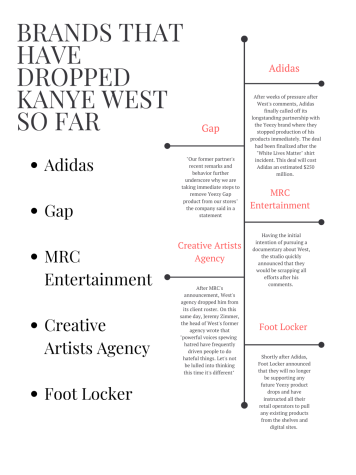
After being near silent in the media, West made the grand reappearance to the public with threats to the Jewish community as well as to the Black Community while openly endorsing people’s enslavement. To begin, West was seen wearing a “White Lives Matter” shirt at Paris Fashion Week, which gathered heightened media attention, specifically when West joined Fox News soon after. During this interview, West made a series of offensive claims about Jewish people and identity, claiming he was allowed to make said remarks because as a Black person, he could not be anti semitic. Here, his views are alienating himself from some of his most important business partners where countless companies terminated their brand deals with him.
Even within the generation of fans and other rappers who had seen him change the sound of hip-hop during his prime, many have begun to denounce Kayne’s iconicity in response to these major controversies which ultimately contribute to him being against the historically black culture the genre of hip hop represents. Now, several companies and institutions have publicly cut ties with the rapper in an effort to distance themselves from his harmful rhetoric. However, despite being dropped from major companies such as Adidas and Gap and offending huge populations that happen to be the bulk of his demographic, West’s statistics on streaming services do not seem to have changed drastically after the series of unfortunate events took place.
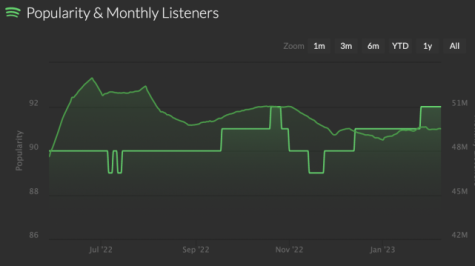
How could this happen? Were people genuinely not knowledgeable about West’s recent actions or were they simply ignoring it to continue listening to his hits? Should they continue ignoring it?
West’s bluntness in the media has ultimately tainted his entire career and overshadowed the significance of his legacy moving forward, however, it does not seem to have changed his loyal supporters from continuing to stream his music. According to them, Kanye West is undoubtedly a genius for revolutionizing hip hop, although it does not make his moral declination any less infuriating. But more importantly, to equate West’s genius with his most recent taps into the debate of ‘separating the art from the artist’.
Is it possible to separate musicians from their songs?
Let’s ask some students at DHS about their perspective on the situation
When discussing with Senior Sophie Curtis about her perspective on the controversies, she understood that West was simply trying to start “trouble” and get attention from the media. Yet, even though Curtis expressed multiple times when talking that even though she is a part of the audience in which he offended through his anti semitic tweets and comments, she was not going to be deterred from listening to his work. She stated, “I am going to keep listening to his music. I already have him on my playlist. I like his songs, not what he says”.
However, Senior Conan Thibodeau disagreed. He argued that if another artist offended his culture and his ethnicity as blatantly as West did, he would “immediately stop listening”.
While there are differing views on whether or not artists should be separated from their work, seen with Curtis and Thibodeau, there was not a drastic enough change in the statistics of West’s streams to push forward the notion that he will not continue to be successful after making the statements that he did. Clearly, people have not decided to completely push aside West but rather continue to play his work, separating his iconic music from his anti semitic and anti-black sentiments that essentially combat the work and progress that he had made in popularizing a black dominated industry.
Perhaps it is the nature of West’s musical uniqueness that makes him inherently problematic: beginning with his debut album,
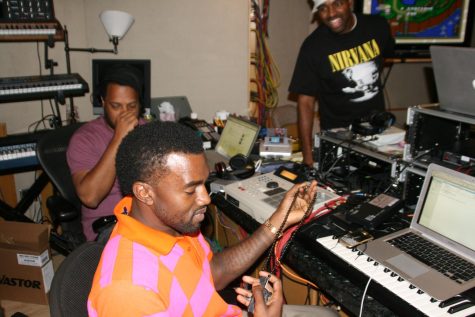
West set a new standard for rap music that abandoned the use of the digital keyboard and beatboxing, formerly universal principles of hip-hop. West replaced hardocre rap with a pop-sounding record that completely changed the precedent for hip-hop in the generation to come. By West practically spawning a new era for hip-hop, West’s revolutionary thinking may completely drown out the sound of his controversies in the eyes of his unflinching fans.
Yet, this raises a new question: even if people continue to listen to controversial artists, does guilt of supporting them inhibit their further listening experience? It is hard to come to terms with West’s decisions, even if fans are adamant about still listening to his work. Perhaps they are forced to grapple with the guilt of supporting him, knowing of the hurt that he has brought many groups of people. Though, maybe this sense of guilt is a redeeming quality in those that are on the affirmative side of the debate to separate artists from their art; they can acknowledge the controversies that surround that artist and are able to have conversations about them as well.

